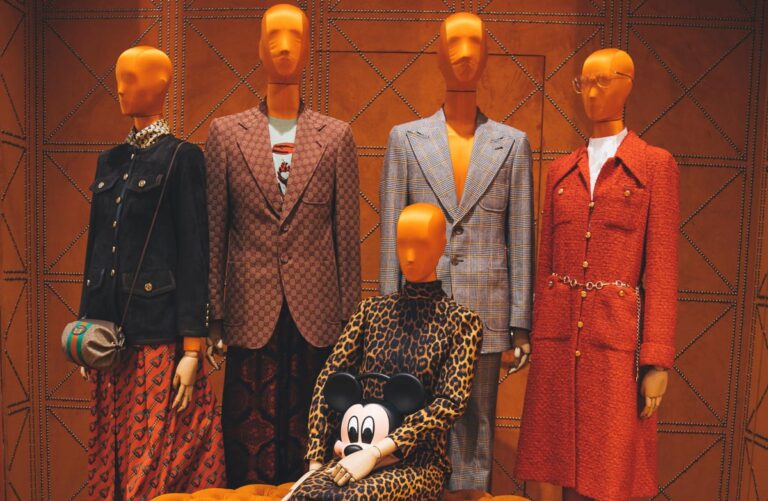Lucky Asda shoppers could find £4,000 Gucci coats for just £12

From its infamous ambassadors Harry Styles and Miley Cyrus to the new highly-anticipated movie, it’s safe to say we have been hit with a Gucci mania with no immediate signs of slowing. Coincidentally timed with the release of the film House of Gucci—a biopic starring Lady Gaga and Adam Driver—British retailer Asda’s fashion branch George announced plans to sell items from the high fashion brand in its stores for as little as £12. Sounds too good to be true? Let me explain.
According to a report from Manchester Evening News, the supermarket giant will be selling Gucci items across its stores from 26 November onwards, but you better be quick if you want a chance at snatching one—if you manage to find it, that is. That’s right, there’s an obvious catch.
With only 30 exclusive pieces scattered across the country and no indication of where they are, consumers will have to go on a high fashion treasure hunt in their local Asda—or if you’re that committed, store-hop a bunch of them. If you’re lucky to have a Gucci piece placed in an Asda near you, don’t expect it to be right on the rack, as “savvy staffers” are finding ways to hide the Gucci treasures.
In a move run alongside its collaboration with PreLoved—a vintage wholesaler and Asda’s current sustainability partner—the supermarket will stock a selection of second-hand Gucci items as part of its vintage range. The pieces will be distributed across 50 locations including London, Bristol, Birmingham, Edinburgh and Brighton. So, be on the lookout (provided all those lucky customers haven’t beaten you to it) for shirts, jackets, socks and even dresses from the brand—ranging from £145 to £4,000—for as little as £12.
Lauren Mallins, junior buyer for George at Asda, said, “Whether you are a lover of vintage or just want to make more sustainable choices, our hand-picked PreLoved pieces are always a treasure trove of gems and now Gucci is adding to our customers’ reasons to shop with us.” Managing director of PreLoved, Steve Lynam, also added how the partnership is one that the company is extremely proud of. “So we’re delighted to be able to offer their customers the chance to pick up something they have always dreamed of owning in their local supermarket.”
The move is a great incentive to steer consumers into second-hand clothing and, eventually, shop more sustainably. It also showcases the continuous push toward environmental consciousness in fashion today. So, even if you don’t manage to find anything Gucci, you could stumble across something even better: sustainability.




